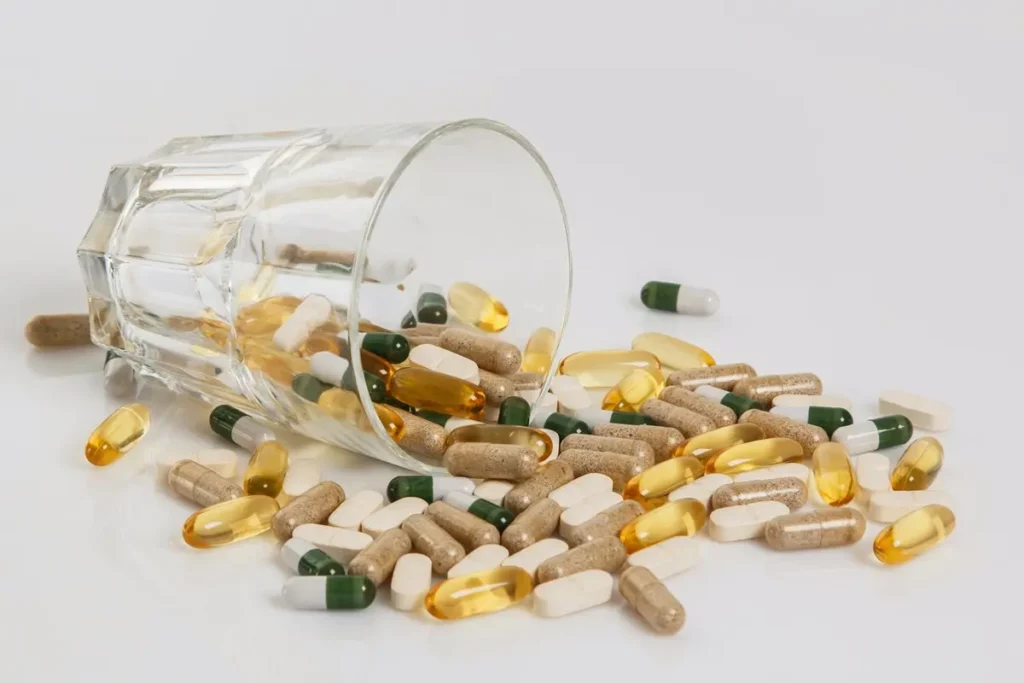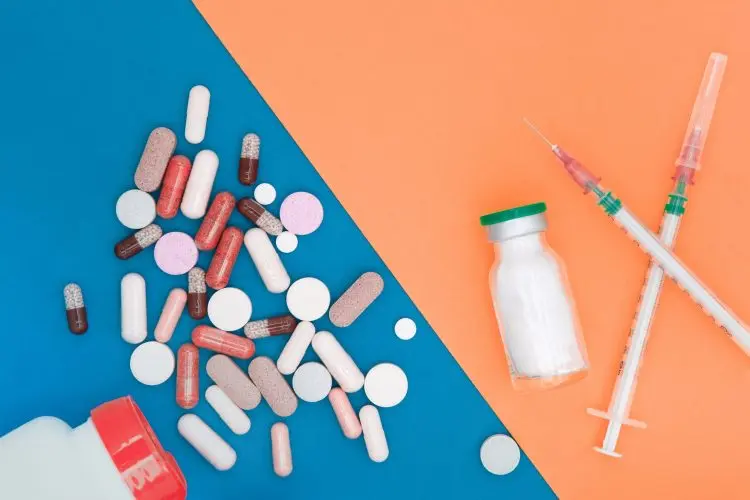Dianabol, also known by its chemical name methandrostenolone, is a popular anabolic steroid used by bodybuilders and athletes to facilitate muscle growth and enhance performance. Since its development in the 1950s, Dianabol has gained a reputation for being a potent oral steroid; however, it also exists in injectable form. The battle between oral and injectable Dianabol is rooted in their differences in pharmacokinetics, ease of use, and the body’s response to them.
While both forms are essentially the same drug and aim to achieve similar results, there are distinct differences in how they are metabolized by the body. Oral Dianabol is often favored for its convenience and faster absorption rate, but it is also associated with potential liver toxicity due to its method of administration. On the other hand, injectable Dianabol’s effects are typically slower to manifest but may last longer and bypass the liver, reducing the risk of liver-related side effects.
Quick Summary
- Oral Dianabol offers convenience but carries a higher risk of liver toxicity.
- Injectable Dianabol is potentially less harmful to the liver and has a longer-lasting effect.
- Both forms aim to increase muscle mass but differ in their administration and metabolism.
Overview of Dianabol

Dianabol is a widely used anabolic steroid, also known by its chemical name, methandrostenolone. It is renowned for its effectiveness in increasing muscle mass and strength. Dianabol comes in two primary forms: oral and injectable, each with their own set of characteristics.
Oral Dianabol
Oral Dianabol is commonly chosen for its convenience and rapid onset of effects. Its main ingredient, methandrostenolone, is structured to bypass the liver, allowing immediate anabolic activity. However, this can also lead to increased liver toxicity.
- Administration: Taken by mouth
- Bioavailability: High, due to C17-alpha alkylation
- Onset of Action: Quick, often noticed within days
- Liver Toxicity: Potentially more toxic to the liver compared to injectables
Oral Dianabol is often used for short-term cycles to kick-start gains in muscle mass and overall strength.
Injectable Dianabol
Injectable Dianabol, on the other hand, is less common but thought to be less stressful on the liver. This version bypasses the first-pass metabolism of the liver, potentially reducing hepatic strain.
- Administration: Via intramuscular injection
- Bioavailability: Preserved due to direct entry into the bloodstream
- Onset of Action: Slower compared to oral form
- Liver Toxicity: Thought to be reduced
Injectable Dianabol may be selected by users who are concerned about liver health or those looking for a more steady release of the steroid into their system.
References
Mechanism of Action and Efficacy

Dianabol, whether administered orally or via injection, is known for its potent effects on muscle growth and strength gains. This anabolic steroid binds to androgen receptors, causing changes in gene expression that promote protein synthesis and nitrogen retention.
Muscle Growth and Strength Gains
Dianabol facilitates significant muscle growth and strength improvements. By interacting with androgen receptors, it exerts its anabolic effects leading to rapid gains in muscle mass. Individuals using Dianabol typically experience marked improvements in strength and size within a short time frame.
Protein Synthesis and Nitrogen Retention
Protein synthesis is a vital process for muscle repair and growth. Dianabol enhances this process, allowing muscles to recover and enlarge at an accelerated rate. Additionally, it promotes nitrogen retention in muscles, which is crucial since a positive nitrogen balance is indispensable for anabolic growth. Sustained nitrogen retention supports a muscle-building environment within the body.
Administration and Dosage

Dianabol, known as Dbol, is a popular anabolic steroid available in both oral and injectable forms. The choice of administration can impact the steroid’s effectiveness, duration of action, and potential side effects. Appropriate dosing is crucial for achieving desired results and minimizing risks.
Oral Administration
Oral Dbol is commonly used due to its convenience and rapid onset of action. It typically comes in tablets with the recommended dosage for bodybuilders ranging from 15-50 mg per day. Beginners are advised to start at a lower dose to gauge tolerance. The half-life of oral Dianabol is short, around 4-6 hours, which requires multiple doses throughout the day to maintain stable blood concentrations.
- Beginner Dose: 15-25mg per day
- Intermediate: 25-40mg per day
- Advanced Users: 40-50mg per day
A standard oral steroid cycle may last between 4-6 weeks. Users often combine Dianabol with other steroids such as Testosterone Enanthate or Deca Durabolin for synergistic effects.
Injectable Administration
Injectable Dbol is an alternative to oral administration with a longer half-life, which allows for less frequent dosing. Doses for injectable Dianabol can vary and should be tailored on an individual basis. The injectable form might be integrated into a steroid cycle with other injectable steroids like Testosterone Enanthate or Deca Durabolin for improved muscle gains.
- Injection Frequency: Typically once or twice weekly.
- Cycle Length: Depending on the cycle, but often ranges from 8-12 weeks.
Dosing should be established with respect to one’s previous experience with steroids and fitness goals. Whether opting for oral or injectable, users should be aware of the heightened risk of liver toxicity with oral Dianabol and the risk of infection with injectable forms.
Potential Side Effects and Liver Toxicity

Dianabol, a potent oral anabolic steroid, presents a risk of significant side effects, particularly liver toxicity. Users should be informed and cautious about these risks associated with its use.
Hepatotoxicity Concerns
Dianabol is a 17-alpha-alkylated anabolic steroid, a chemical alteration that allows it to pass through the liver without being broken down. However, this characteristic significantly increases the strain on the liver, potentially leading to liver damage or hepatotoxicity. Elevated liver enzymes are a common indicator of liver stress, and in severe cases, jaundice, liver failure, or liver cancer could manifest.
- Liver Toxicity Signs: Yellowing of the skin or eyes, abdominal pain, nausea, and unusual fatigue.
- Elevated Liver Enzymes: AST (SGOT), ALT (SGPT), and ALP.
- Long-term Effects of Liver Damage: Scar tissue development and impaired liver function.
Management of Adverse Effects
Effective management of side effects when using Dianabol includes a combination of medications, supplements, and lifestyle adjustments. Users often implement liver support supplements, such as milk thistle or TUDCA, to mitigate toxicity. Monitoring cholesterol levels is vital, as Dianabol can negatively affect LDL (bad) and HDL (good) cholesterol ratios.
- Aromatase Inhibitor Usage: To counteract estrogenic side effects like gynecomastia.
- Cholesterol Management: Incorporating omega-3 fatty acids, minimizing saturated fats, and regular cardiovascular exercise.
- Regular Blood Tests: Essential to monitor the liver and cholesterol levels during and after the cycle.
It is crucial for individuals considering Dianabol to weigh the potential for liver toxicity against the desired anabolic effects and to consult a healthcare professional before use.
References
- Liver Toxicity of Anabolic Androgenic Steroid Use: https://www.ncbi.nlm.nih.gov/pmc/articles/PMC3846867/
- Management of Anabolic Steroid-Induced Side Effects: https://www.ncbi.nlm.nih.gov/books/NBK482418/
- Cholesterol Effects of Anabolic Steroids: https://www.ahajournals.org/doi/full/10.1161/01.CIR.100.11.1134
Comparative Analysis of Dianabol Forms

Dianabol, a powerful anabolic steroid, is available in oral and injectable forms, offering distinct methods of administration that influence effectiveness, convenience, and accessibility.
Oral vs Injectable Dianabol
Oral Dianabol, also known as methandrostenolone, is renowned for its efficacy in building significant muscle mass and strength within a short time span. The oral form actively influences protein synthesis and glycogenolysis more rapidly than many other steroids, like Winstrol. However, it has a shorter half-life, requiring multiple doses throughout the day to maintain stable blood levels.
The injectable form of Dianabol has a longer half-life as it is often an aqueous suspension and might allow for less frequent dosing. Injectable Dianabol could result in more even blood levels and may reduce hepatic strain compared to its oral counterpart. Yet, for those who are needle averse, the invasiveness of injection can be a significant downside, as it is more painful and poses a risk of injection site complications.
Convenience and Accessibility
When it comes to convenience, oral Dianabol scores highly since it is simply ingested, offering a quick, painless method that doesn’t require the preparations and tools that injectables demand. The availability of oral Dianabol is often greater compared to the injectable form, as it is the most common and widely produced.
Injectable Dianabol, while not as commonly found and potentially less convenient due to the necessity of needles and proper injection technique, avoids the first-pass metabolism by the liver which may appeal to those concerned about hepatic health. Despite the inconvenience, enthusiasts who prefer the injectable form point to its sustained release and steadier blood levels as reasons for their choice.
Frequently Asked Questions

This section answers common inquiries about the differences and characteristics of oral versus injectable Dianabol, including their side effects, absorption rates, efficacy, dosing guidelines, and usage cycles.
What distinguishes oral from injectable forms of performance-enhancing drugs?
Oral performance-enhancing drugs are taken by mouth and pass through the digestive system, typically having a faster onset but shorter duration. Injectable forms are administered through a needle directly into the muscle, offering a slower release and longer-lasting effects.
What are the common side effects associated with injectable compared to oral Dianabol?
Injectable Dianabol may lead to less liver toxicity compared to its oral counterpart due to bypassing the first-pass metabolism. However, both forms can exhibit side effects, such as estrogenic effects leading to gynecomastia, acne, and changes in cholesterol levels.
How does the absorption rate differ between oral and injectable Dianabol?
Oral Dianabol has a quick absorption rate due to its passage through the digestive system, meaning it enters the bloodstream rapidly. Injectable Dianabol typically features a slower absorption rate, providing more sustained levels of the drug in the body.
Can the efficacy of Dianabol vary between oral and injectable routes?
The efficacy of Dianabol can vary between the two routes of administration. The injectable form might result in more stable blood concentration levels, possibly leading to better muscle mass and strength gains over time.
What is the typical dosing guideline for oral versus injectable Dianabol?
Oral Dianabol is often dosed multiple times a day due to its short half-life, whereas injectable Dianabol is commonly administered less frequently – perhaps once every few days – as it remains active in the body for a longer period.
Are there any specific cycle recommendations for injectable Dianabol?
For injectable Dianabol, users might cycle the drug for periods of six to twelve weeks, with some choosing to stack it with other substances. It is crucial to integrate post-cycle therapy to support the body’s hormonal balance after a cycle ends.
References
- Anabolic Steroid Use and Abuse: https://www.ncbi.nlm.nih.gov/books/NBK482418/
- Dianabol Side Effects: https://pubmed.ncbi.nlm.nih.gov/
Dr. Grant Fourie, a specialist in male hormones, is based in Cape Town, South Africa. He provides comprehensive treatments for conditions related to low testosterone, such as erectile dysfunction, fatigue, and mood changes. His methods include hormone replacement therapy and other modern treatment options.
Contact me via email or phone to book personal appointment in my clinic: The Village Square, Cape Town - South Africa



